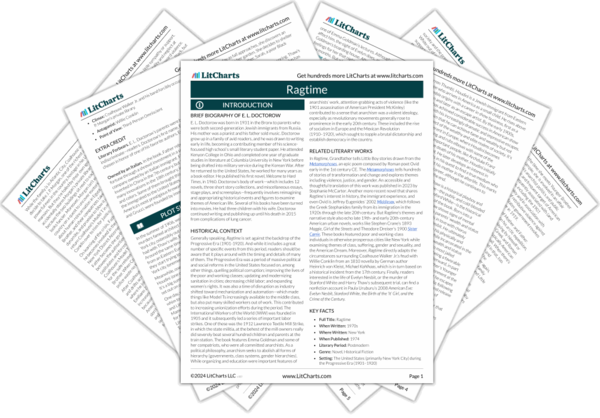By denying Little Girl a proper name, the book makes her a representative example of the immigrant experience. But it’s hard not to notice how neatly this mirrors the way Tateh and Evelyn (for different reasons) claim ownership over her. The book carefully avoids constructing any personality for Little Girl, leaving her vulnerable to being cast in various roles (the adorable urchin, the unsullied virgin) in other people’s stories.


